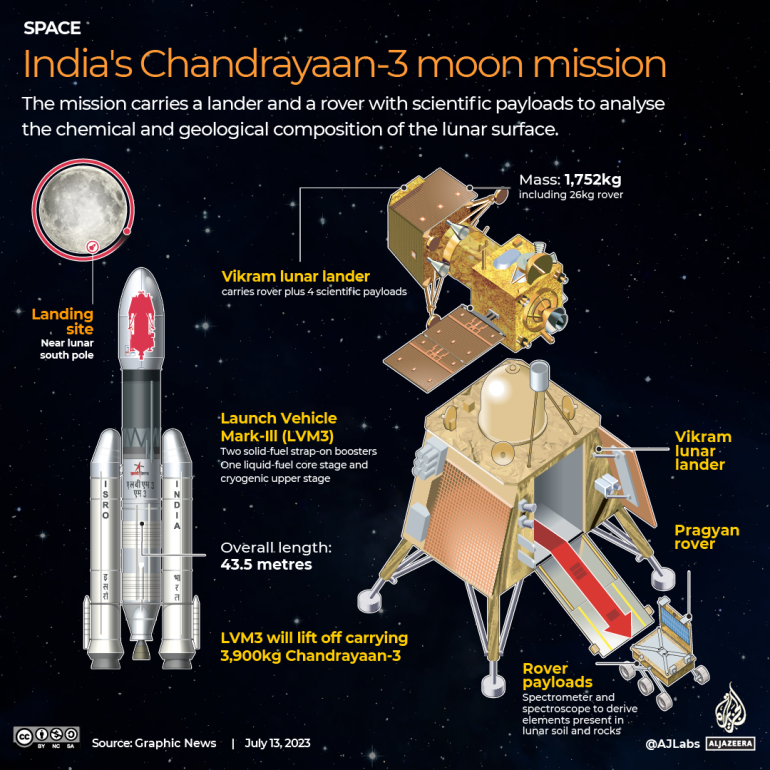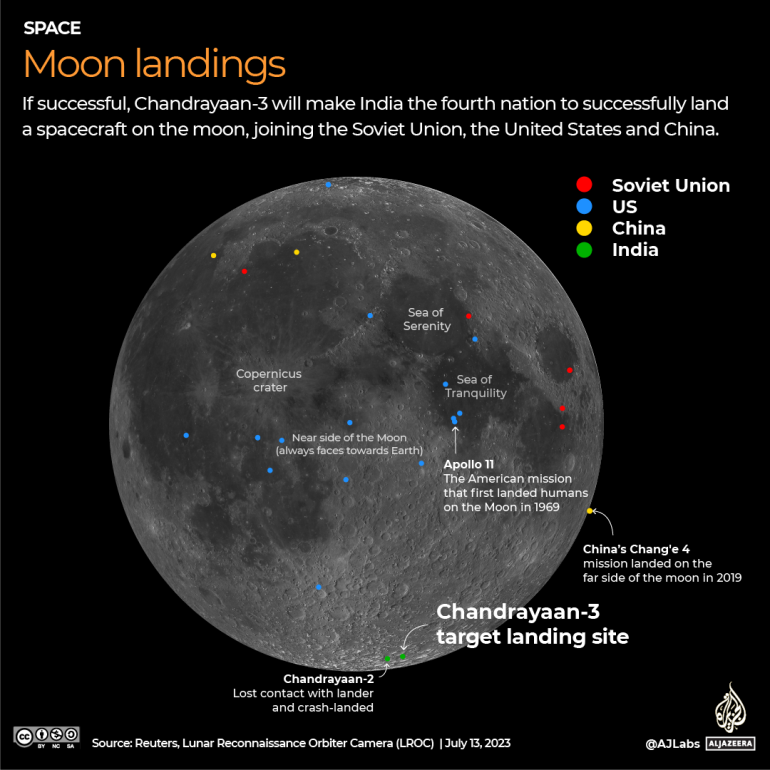
India’s space agency has launched a rocket that will attempt to land a spacecraft at the lunar south pole, an unprecedented feat that would advance India’s position as a major space power.
Television footage on Friday showed the Indian Space Research Organisation’s (ISRO) LVM3 launch rocket blast off from the country’s main spaceport at Sriharikota in the southern state of Andhra Pradesh, leaving behind a plume of smoke and fire.
The Chandrayaan-3 mission – “moon vehicle” in Sanskrit – is designed to deploy a lander and rover near the moon’s south pole on about August 23.
Applause and cheers swept through mission control at Satish Dhawan Space Centre, where the ISRO engineers and scientists celebrated as they monitored the launch of the spacecraft.
Thousands of Indians cheered outside the mission control centre and waved the national flag as they watched the craft rise into the sky.
“Congratulations India. Chandrayaan-3 has started its journey towards the moon,” ISRO Director Sreedhara Panicker Somanath said shortly after the launch.

Only three other space agencies – the United States, the former Soviet Union and China – have touched down a lander on the moon’s surface.
None has landed near the lunar south pole.
Indian Prime Minister Narendra Modi, who is currently visiting France, tweeted that the mission was carrying the “hopes and dreams of our nation”.
The third Chandrayaan includes a two-metre-tall lander designed to deploy a rover near the lunar south pole, where it is expected to remain functional for two weeks running a series of experiments.
ISRO’s Chandrayaan-2 mission in 2020 successfully deployed an orbiter but its lander and rover were destroyed in a crash near where the Chandrayan-3 will attempt a touchdown.
Upon touchdown, the rover will roll off the lander, named Vikram, which means valour in Sanskrit and explore the nearby area, gathering images to be sent back to Earth for analysis.
The rover, named Pragyan, the Sanskrit word for wisdom, has a mission life of one lunar day or 14 Earth days.







